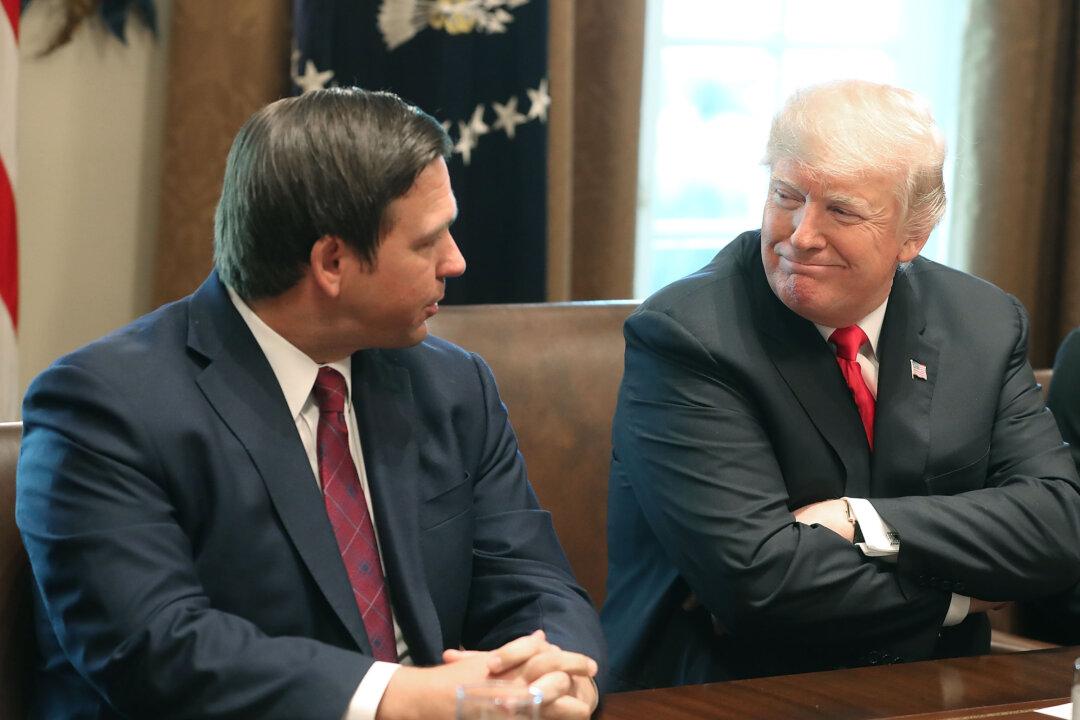Florida Gov. Ron DeSantis on Jan. 31 responded for the first time since former President Donald Trump criticized his fellow Republican for how he handled the early days of the COVID-19 pandemic.
DeSantis, speaking at an unrelated press briefing after being asked about the criticism, said that he faces attacks as soon as he wakes up each morning.





